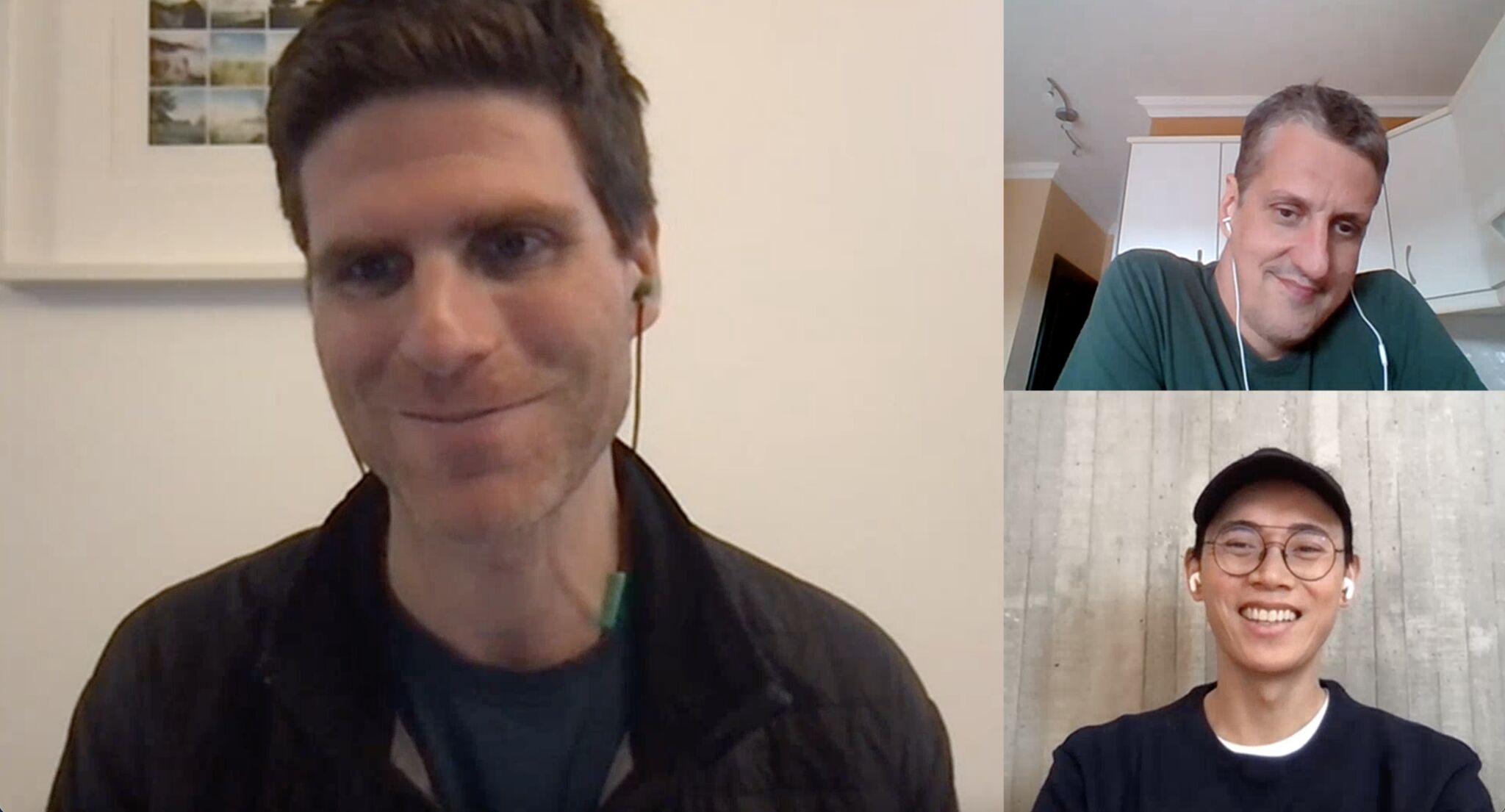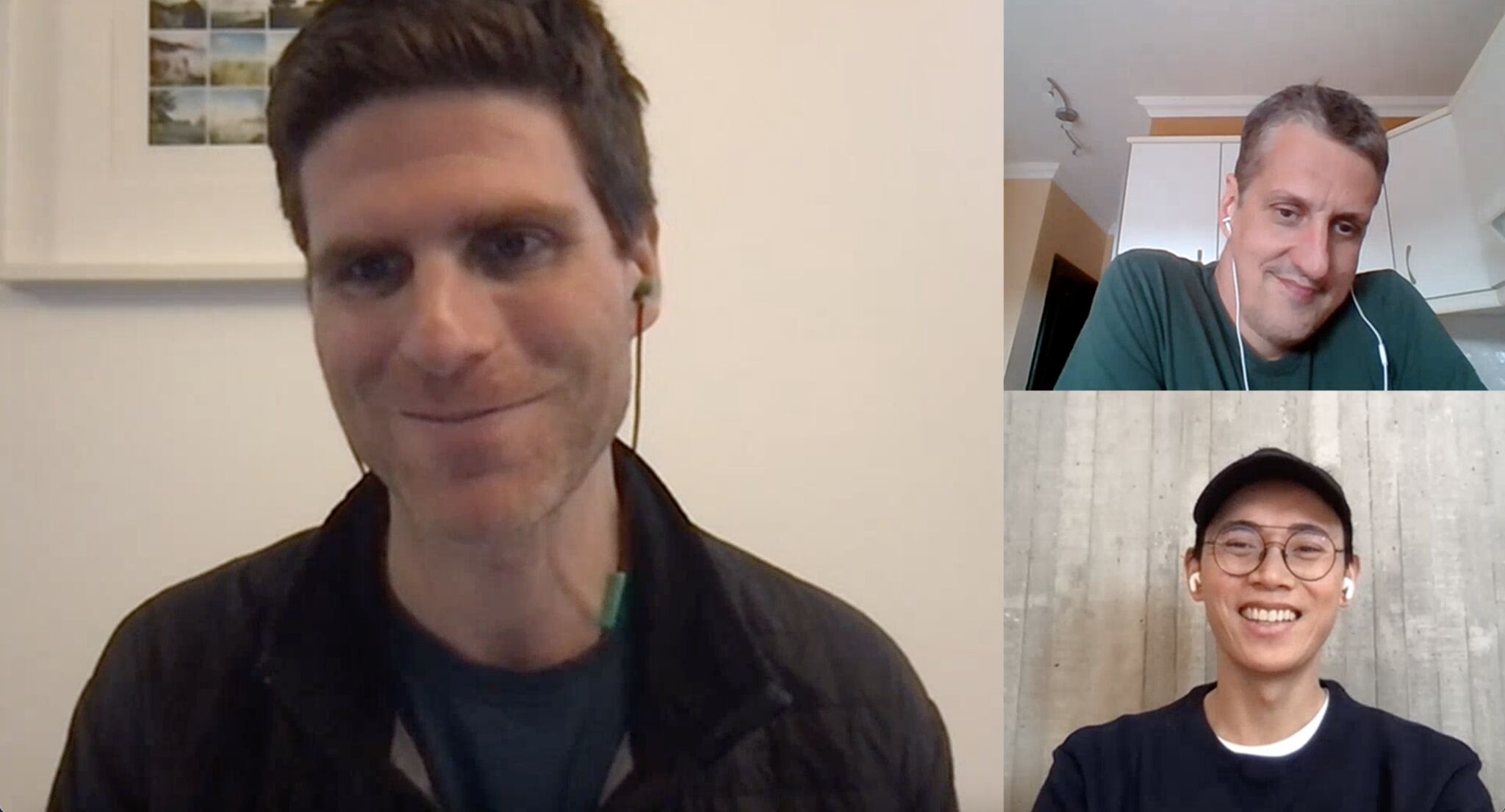
Do you want your online language school and online teaching business to appear on the front page of Google when someone searches relevant terms?
When it comes to getting free leads, improving your Search Engine Optimisation (SEO) is a great place to start. After all, what’s better than getting customers organically through them successfully finding your website?
SEO has come a long way from when Google hit the internet in the late 90s - with over 4 billion people now using Google, you’re facing a lot more competitors fighting for a spot on the front page of search results.

LearnCube's CEO, Alex Asher and co-founder of the 'Get More Students' podcast, Herbert Gerzer, interviewed Sandy Allain, an expert who specializes in SEO for education through his business Language School SEO. Sandy helped us navigate all things SEO, by busting 5 common myths you may have heard…
Myth #1: “SEO doesn’t work for language companies”
There is no set “right” way to get SEO to work for your language company, and it may take a bit of trial and error to find what works for your online teaching business.
Sandy advises “focus on your market and then expand”, suggesting a good place to start is taking time to consider your market and try and prepare your website to appeal to those ideal customers.
Making your website appeal to your target market can start as easily as making your website easy to navigate and use words that matter to your business. For example, "how to tutor math online" or "online English language teaching".
By focusing on a niche for your tutoring or language business, and creating content for this specific target market with certain phrases, you set yourself up for successful SEO.
Sandy’s bonus tip: If you can, create a page for each language that's important to your overall business (e.g. you might be targeting Spanish speakers wanting to learn English online). You cannot have everything written in English and expect the SEO to work as well in all other languages.
Myth #2: “SEO can work really fast for your language tutoring business”
Just like most things that are worthwhile in business, successful SEO takes time. If someone offers to help switch up your SEO really fast, the likelihood is they won’t achieve long-term success for your business.
Did you know Google can actually penalise your website if it detects attempts to manipulate site rankings? An example could be Google detecting too many links pointing at your site using text that matches the keywords you are trying to rank for. The penalty for this could result in your website dropping 10-100 positions in the search results for multiple keywords! Losing a single well-ranking page or keyword could mean losing thousands of dollars in business so is not worth the risk.
Successful SEO takes time, so don’t be tempted to rush something and risk Google punishing you and your business - which can last for years.
Myth #3: “Posting blogs will improve my SEO immediately for my language school”
As we have just discussed, there is no quick fix for successful SEO.
Expert Sandy recommends blogging for online tutoring companies and language schools as long as the blog is clicked, read and used by the target market.
By blogging successfully to your target audience you can improve your SEO over time as your blog gains readers and is clicked on, read and shared.

Myth #4: “Lots of keywords will improve my page ranking”
Will sprinkling keywords all over your website automatically improve the page ranking?
Whilst this trick may have worked back in 1998, Sandy explained that these days your focus should be on the topic rather than the number of words.
If your content isn’t authentic or engaging, then you won’t gain or retain any customers by just putting in more words. By focusing your webpage on a couple of chosen keywords you can organically improve your page ranking.
Sandy bonus tip: Adding a couple of keywords to your blog is a good way to improve its visibility in relation to relevant searches.
Myth #5: "The only spot on Google worth aiming for is no.1"
This last myth is definitely one to bust. The top spot is not the only one worth aiming for on Google.
The real goal should be to aim for the first page of Google search results as often searchers will consider at least the first five websites when making a decision of which product they would like to go forwards with.
All the best with your SEO strategy and if you'd like to listen to our Get More Student's podcast with Sandy on SEO for online language schools, click here or here for LearnCube's Online Language School software.


 CEO of LearnCube
CEO of LearnCube


